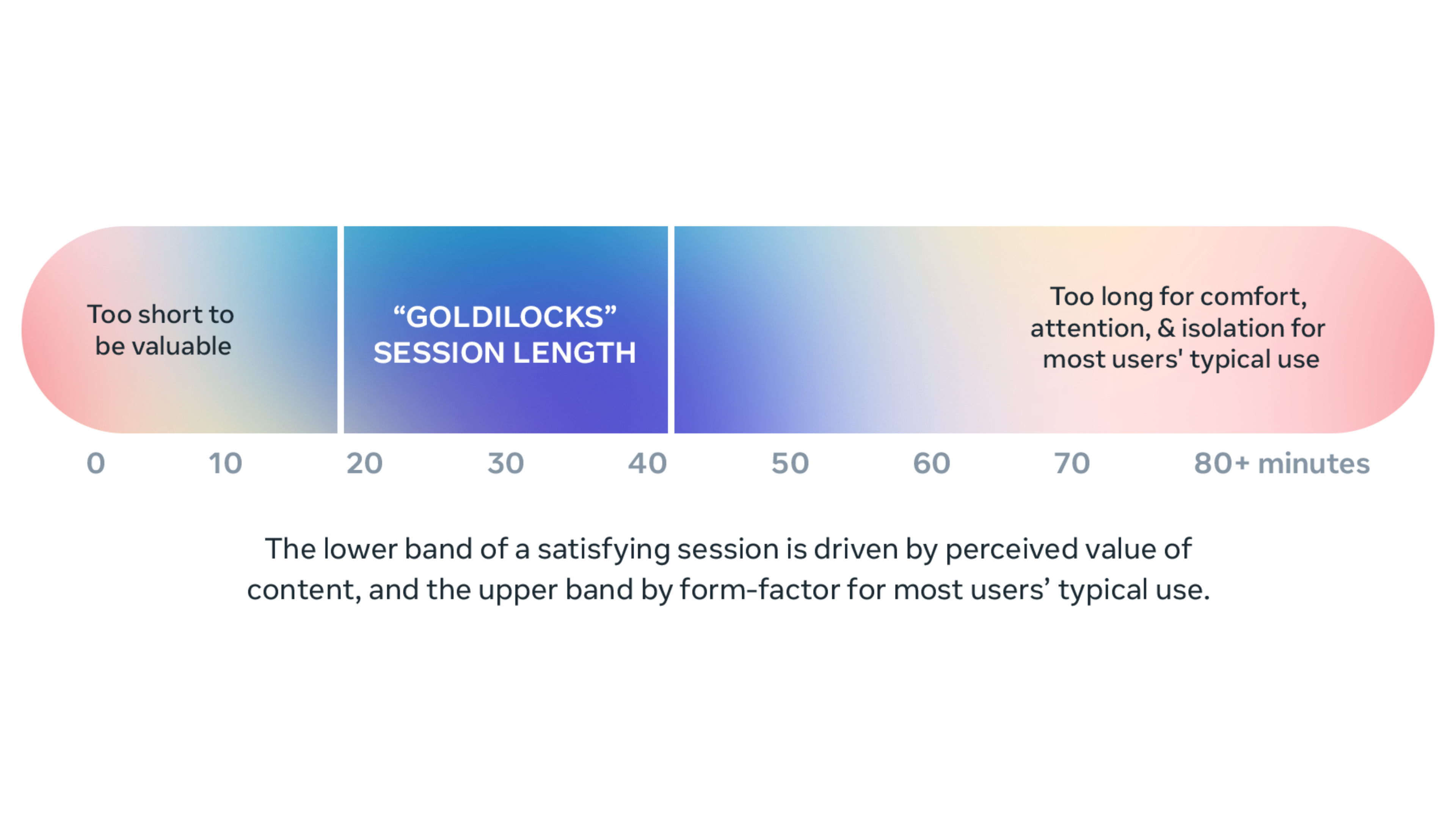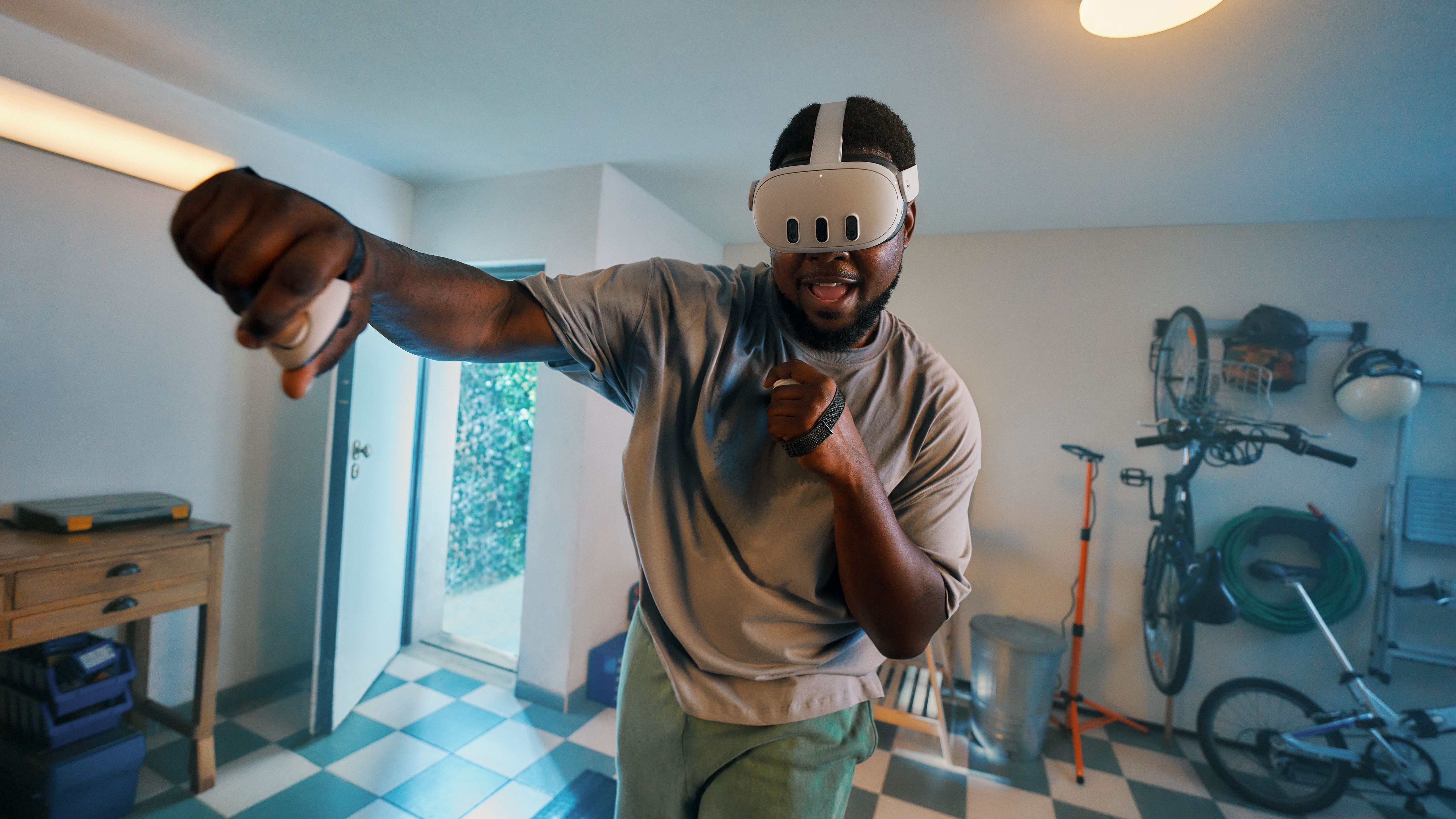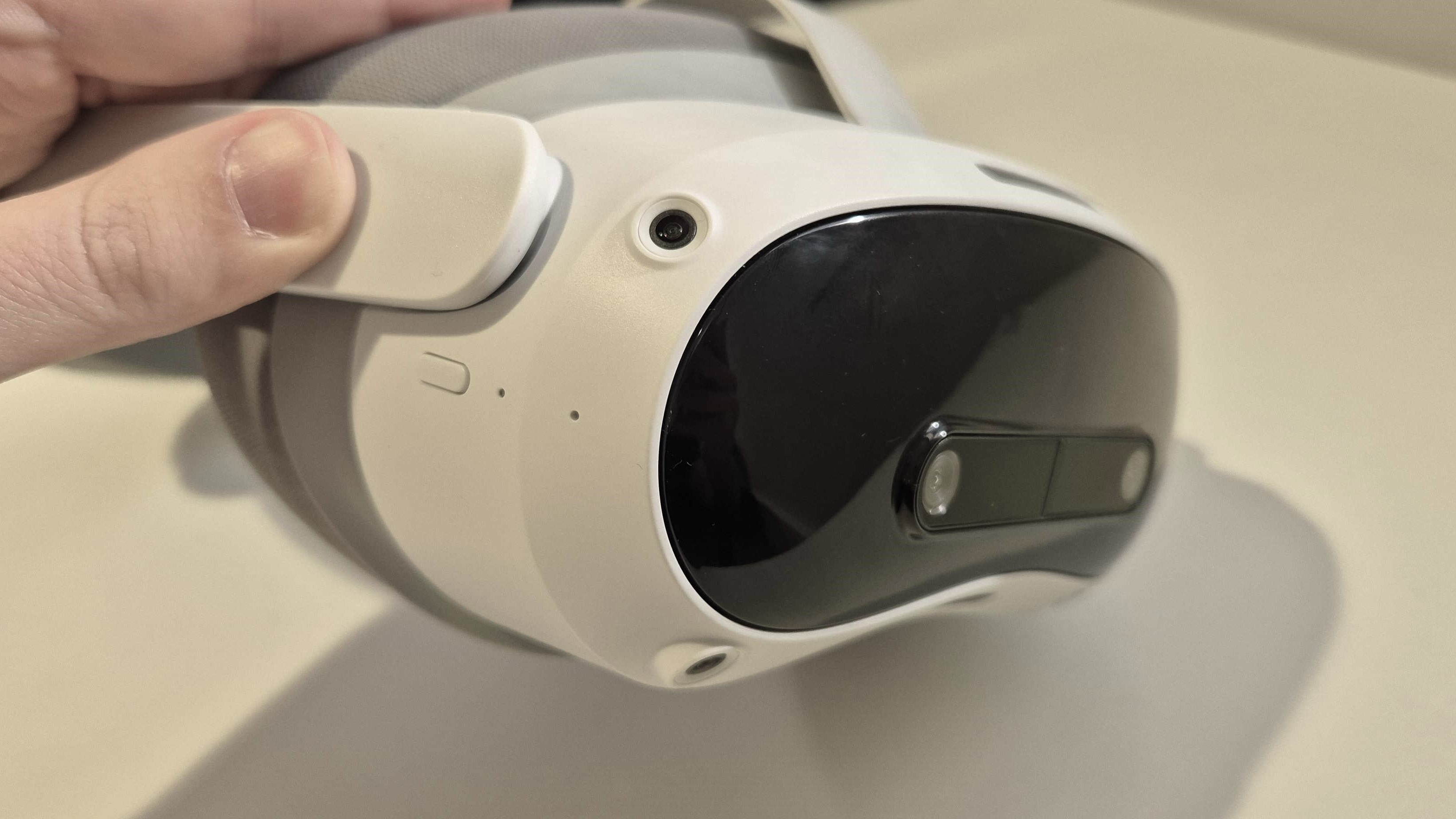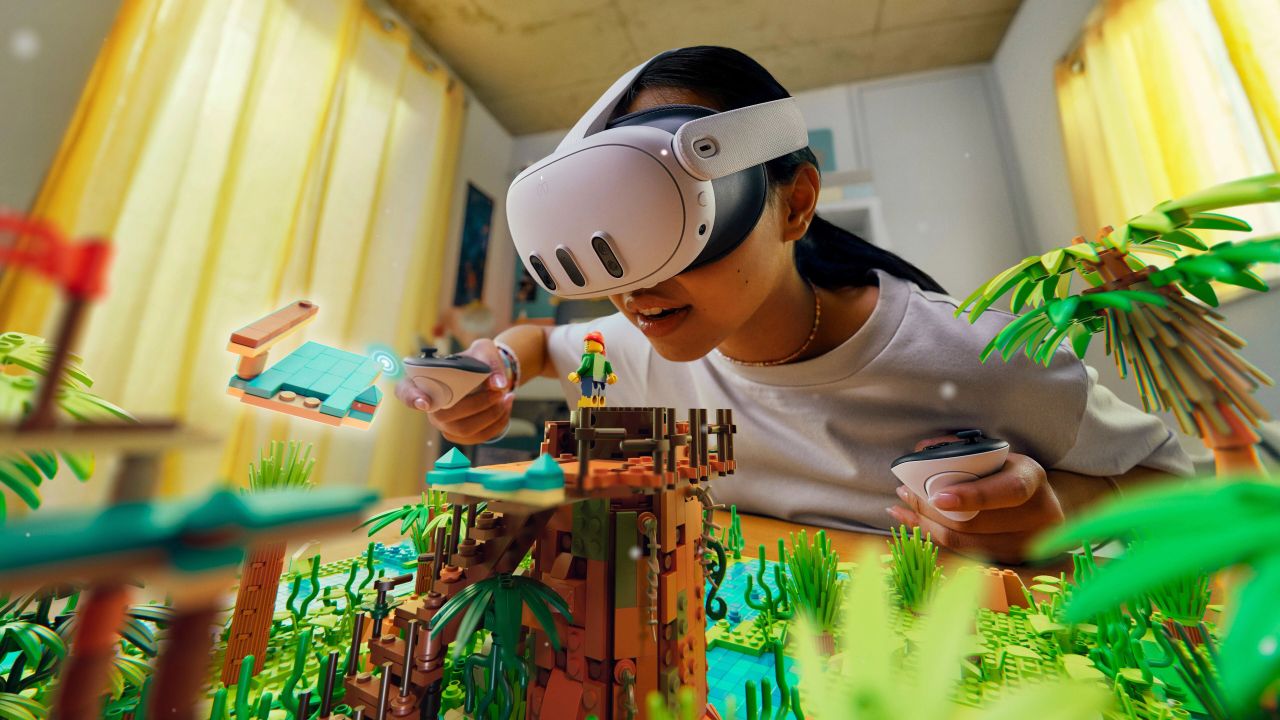- Meta revealed the ideal VR gaming session is 20 to 40 minutes
- Less than that and VR doesn’t feel worthwhile
- Longer and hardware issues can have a negative impact
Meta has released new research it has conducted into the perfect length of VR games, and based on my experience testing its Meta Quest 3, Meta Quest 3S, and its older headsets, the results of the study ring true.
This advice might not just mean we see alterations to the kinds of apps we get in VR, but also tweaks to Meta’s hardware itself. Its published findings point to design issues that many have with existing hardware, problems that leaks of Meta’s next headset release suggest have been resolved for its next device.
More on that below, but first let’s begin with Meta’s research, and why 20-40 minutes is apparently the ideal length for a VR game session.

As Meta succinctly explains in a short graphic (above), the “Golidilocks session length” is about 20-40 minutes based on its research.
If a VR session is shorter than 20 minutes, we can be left feeling unsatisfied. While many mobile games can get away with a shorter 5 to 10 minute loop (or even less), VR requires more effort to enter (clearing space, donning the headset, etc), so it necessitates a more worthwhile experience.
VR can still offer those shorter loops – such as Beat Saber delivering levels which are just one song long – but they need to be chained together in a meaningful way. For example, you can play several Beat Saber missions as part of a workout, or as a warm-up to your VR gaming sesh. For multiplayer games, if a match is typically 10 minutes long, a satisfying experience might be that your daily quests are something you usually accomplish in two games.
After 40 minutes, the experience starts to have diminishing returns as people begin to feel friction from physical constraints – such as their fitness levels for a more active game, social isolation in single-player mode, limited battery life, or (for newcomers) motion sickness.
That’s why Meta says it has found games between this length are just right (i.e. in the Goldilocks zone) for most VR gamers.

Now, if you’re not a VR app developer, this will be directly useful for your software, but for non-developers, there are some things we can take away from Meta’s findings.
For a start, it provides some additional proof for the advice I always give VR newcomers: just start with a headset and get accessories later.
Now, if they come free in a bundle that’s one thing, but if you’re looking to spend a significant sum on a headstrap with a built-in battery on day one, you likely want to think again.
Yes there are plenty of people who do push through that 40-minute barrier and love it, and so having a larger battery is useful – I always think back to my time playing Batman: Arkham Shadow for as long as my battery would allow and being so frustrated at waiting for it to recharge – there are many folks for whom just 20 to 40 minutes is perfect.
As I always say, try your headset for a few weeks and see if you need a bigger battery or would benefit from any other accessories before buying them. With fast delivery, you won’t be waiting long before you get them anyway if you do decide they’re for you.

This research could also point to Meta’s next VR headset design as it works to remove some of VR’s hardware barriers.
There are several rumors that its next headset, codenamed Puffin, and now Phoenix in leaks, will be ultra-slim goggles. Its rival, Pico, is said to be designing something similar (you can see the Pico 4 Ultra above).
The bulk of the processing power and the battery would be shifted to a puck, kinda like Apple’s Vision Pro, but with even more crammed into the pocket-sized pack, so that the weight on a person’s head is only a little over 100g.
Considering a Meta Quest 3 weighs 515g, this would be a serious change, and could transform the Horizon OS headset into something people can (and want) to wear for hours on end rather than less than an hour.
What’s more, with the battery in a person’s pocket, Meta could make it even larger than before without affecting comfort. Though, as with all speculation, we’ll have to wait and see what Meta announces next, perhaps it’ll be nothing like a headset and a smartwatch instead.
